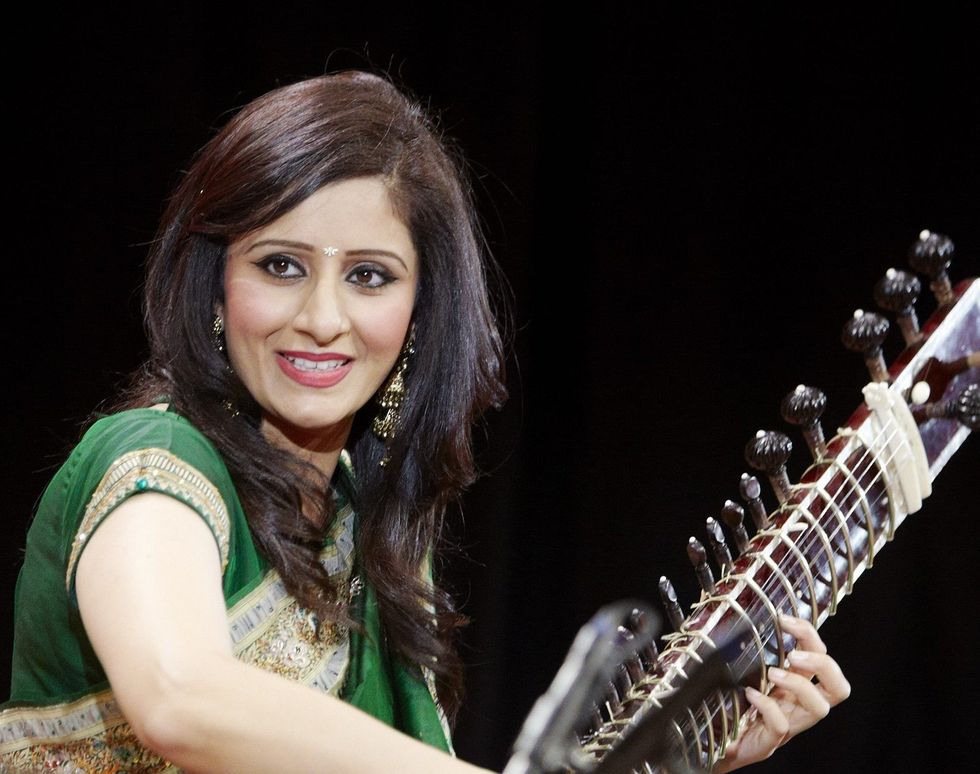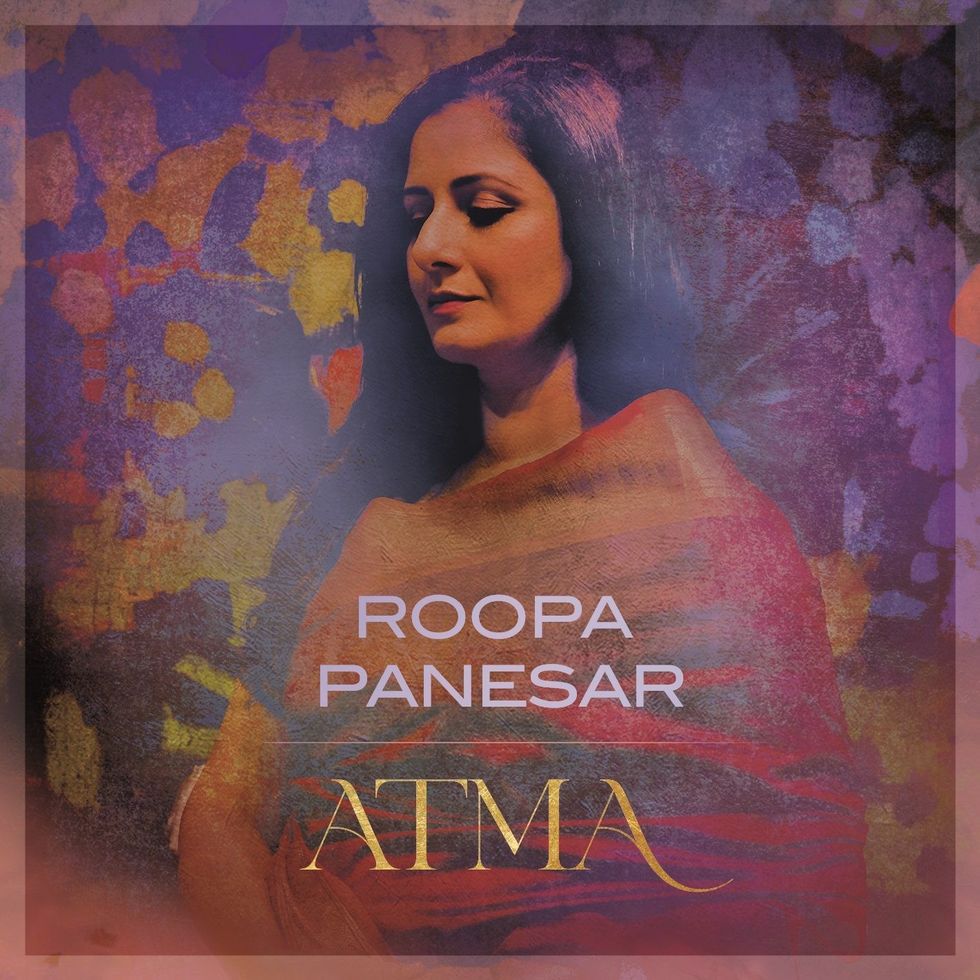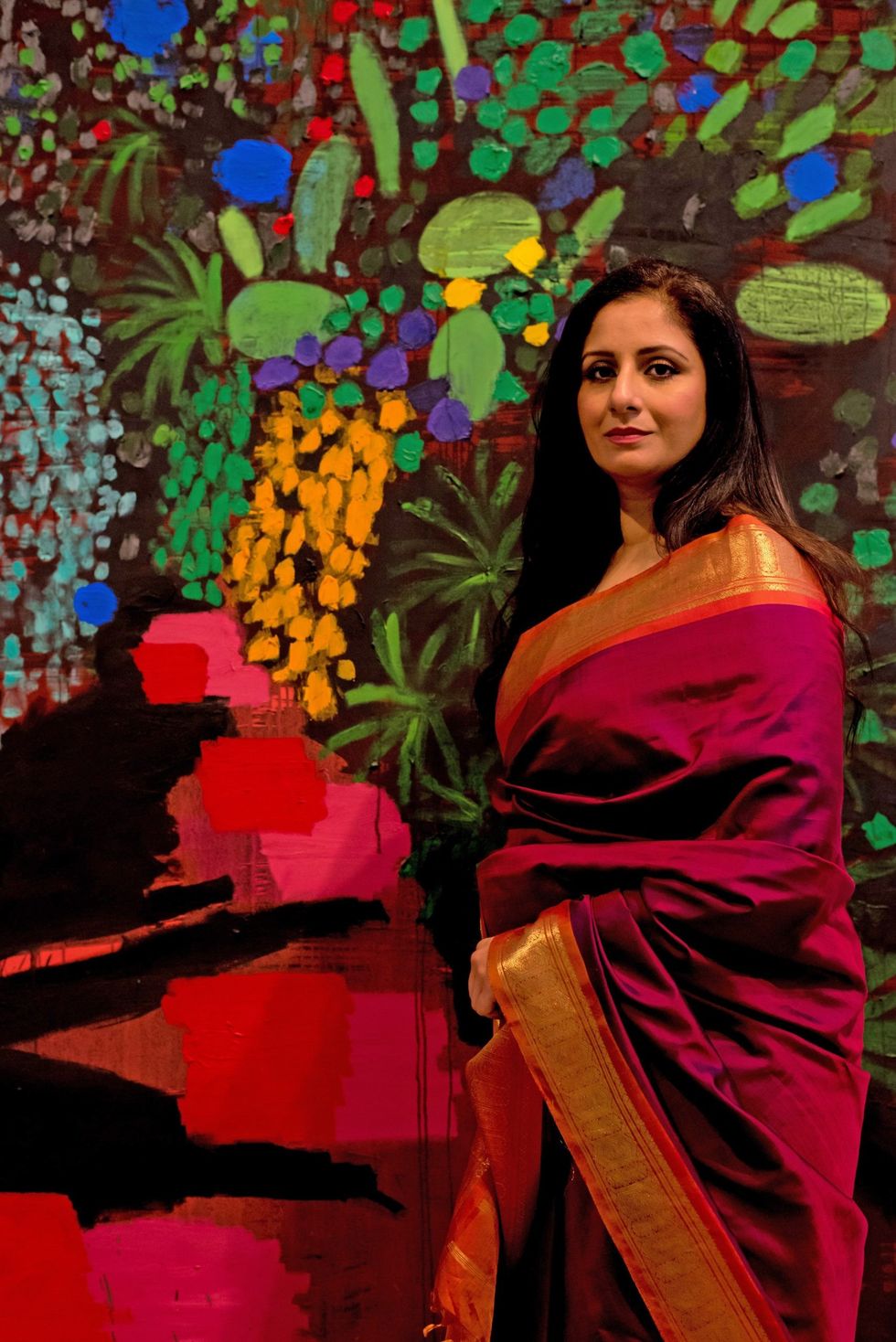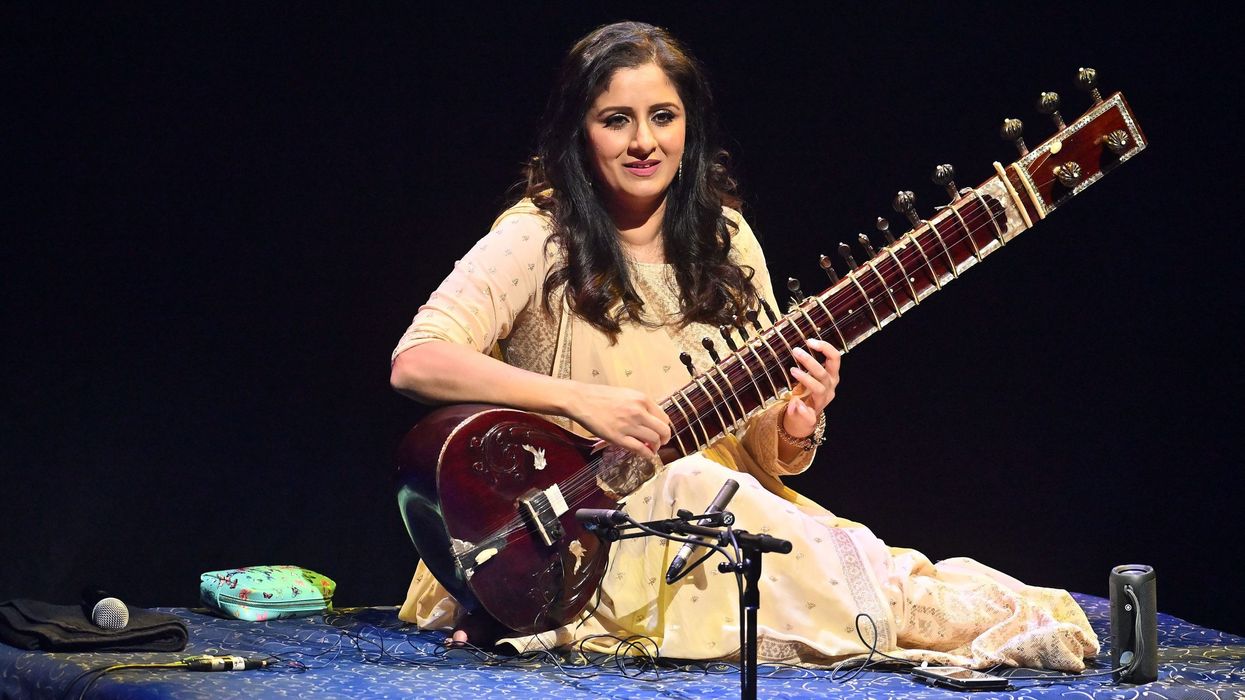INDIAN classical music has thrived in the UK largely thanks to leading lights like Roopa Panesar.
Born in London and raised in Leicester, the supremely talented sitar maestro has dazzled audiences around the world with her stunning musical mastery. The world-class live performer has combined the cool presence on stage with classical compositions and big collaborations.
Her amazing new album Atma continues that vibrant journey that continues to show how culturally rich the Indian classical tradition is in UK.
Eastern Eye caught up with the softly spoken music maestro after a stunning concert at Barbican Theatre in London to discuss her lifelong connection to classical music, new album, dream collaboration, inspirations, and the other instrument she would love to master. She also spoke about the importance of raising awareness about British Asian classical talent and key advice for aspiring musicians.
What first connected you to the sitar?
Well, I started playing at the age of seven and initially it was my parents who wanted me to do it. I wasn't particularly wanting to do something myself. It was my parent’s passion, initially. But I do remember as a youngster, being very mesmerised by the actual instrument and sound of it. By the fact it had so many strings because my cousins used to play. When I was little and went to their house, I'd see it, sitting in the corner, and always wanted to touch the strings. That's basically how it started.
Do you remember when it became a passion?
I don't know how that strong connection happened straightaway. It kind of like immediately became a part of me, as I'd be practising. My guru and teacher Ustad Dharambir Singh ji sort of noticed that I was really into it, during lessons. I used to have short lessons in the beginning and then he would start pushing me more. And I used to also listen to my sitar idol Ustad Vilayat Khan. I've just always been sort of hypnotised by it.
How much has live performance shaped you as an artist?
I would say massively because of the whole process of performance - the preparation, thought process, and practice that needs to go into it. The thought about how to present to an audience, has been a massive part in shaping me really.
On stage your hands are like going at 100 miles an hour. How do you make it look so effortless?
(Laughs) I don't know. I think it's all an illusion! It's very kind of you to say that, but in my own eyes, I still have got a very, very long way to go in my journey.

What has been your most memorable live performance?
The most recent, which we just did at Barbican was pretty memorable. I think that's probably in the top 10 now. But other than that, probably at the age of 15, playing in front of my absolute idol Ustad Vilayat Khan, which was just in a very informal setting at my guru-jis house. I was 15 at the time, so that's something that has always stayed with me. There are many others memorable performances.
What's the secret of a great live performance?
I think for me, the times it's been really, special is when I've lost myself. I think that's what it is. Where I've not really been thinking about what I'm doing, or I've come off stage, and didn't feel like I was doing it. When it just felt kind of like I don't remember what happened, in the sense because that feeling of just being in the moment is probably the best time.
What inspired your latest album Atma?
There are a few inspirations, starting with my whole journey as a musician, including my personal one. We were able to record this towards the end of lockdown, so this was a really poignant time for everybody, especially musicians. We had just started coming together, and didn't even know, if we were ever going to be able to perform in public again. Certainly, for myself! We were trying to figure out what the future would be.

Did that time in lockdown not being able to perform live worry you?
It's not something I worried about, because it helped me to become more reflective with my music. I just sat back with the instrument at home and got into practice. I started thinking about it differently. I had time to think about things and get more into the meditative aspect. So, those feelings we all had from being in isolation, where we went into deep reflection, and came together, inspired us. For me, I had been in a sombre mood, after experiencing some personal loss. We came together at these amazing Real World Studios, where it's like the Bentley - such an incredible place. So, feeling really blessed and grateful. Whatever we kind of expressed there, was what happened.
Who are you hoping connects with these compositions?
My dream would be everybody. I know Indian classical music is obviously not for everybody. But I do feel that Indian classical music has got such deeply profoundly healing aspects to it. And, we played from our hearts, so I pray that it just touches somebody else's heart.
And is there anything specific that inspired that lovely album title, Atma?
Well, the title was me having a conversation with my mum and daughter, and what should I call it? They asked what are you feeling? What is it about? I said, it's about soul, depth, and my insights. My mum just said Atma. And I thought, yeah, that's it.
Do you think that classical Indian music needs to combine with contemporary influences to survive?
That's a good question. I don't think it needs it and will always be there. For the people practising it, they will always carry on. It's never been music for the masses. Sadly, the same goes for western classical music. But at the same time, people who do listen, including those not really into it find something very calming, healing or very relaxing about it. Playing in a slightly more contemporary way certainly does make it more accessible and open to a wider audience. But I'm still quite a purist at heart. I love both aspects.

Do you have any unfulfilled ambitions?
Not really! I'm just in the hands of the Almighty, with whatever I'm supposed to do, or what will happen. I'm not terribly ambitious. The main thing is to be able to play my instrument every day, improve myself and better myself. Growing up, I've listened to the masters, and they played at unreachable heights. So, I'm always aspiring.
There is relatively little awareness about really fantastic Indian classical musicians, who are British like you. How do you feel about that?
I was recently called to play a festival in India, and they just assumed I was from India. I had to say, I'm from Britain. It does feel a bit sad at times. But other times, so many of my colleagues are doing some amazing work. I think the great thing for us is now, the world feels smaller with social media and there is a lot more recognition happening. People from India now recognise that there are British Indian classical musicians, and we're being invited to different parts of the world, which is amazing.
But there needs to be more awareness in UK…
Yes, it would be amazing if the arts in Britain would give more opportunity to Indian classical music and present it. I think that would make it more accessible. But certainly, myself, I just feel grateful and blessed because I have had a lot of support.
You are a really strong role model. What advice would you give young musicians?
Work hard! Follow the teachings of your teacher, or guru, and just train hard. Just play from your heart and follow your dreams. Don't get down about it because this is definitely a hard journey, if you decide to do it as a full-time thing.
If you could master another instrument, which one would it be?
I would love to play the piano properly. It just blows my mind.
If you could collaborate with anybody globally, who would it be?
Wow! Well, I think every Indian classical musician, dreams of playing with Ustad Zakir Hussain. That's like an unthinkable dream. He's just a god of the world. Maybe Beyonce, that would be cool.
Finally, what inspires you today creatively?
I think just life inspires me. I'm a bit older and been through stuff. I just take inspiration from what's around me. I'm inspired when I'm meditating or praying, and things like that. It helps me to feel centred. I'm still ever inspired by the great musicians.
Atma by Roopa Panesar is available now. Catch her in concert at St George’s Bristol, Great George Street, Bristol BS1 5RR on March 24. www.roopapanesarmusic.com




